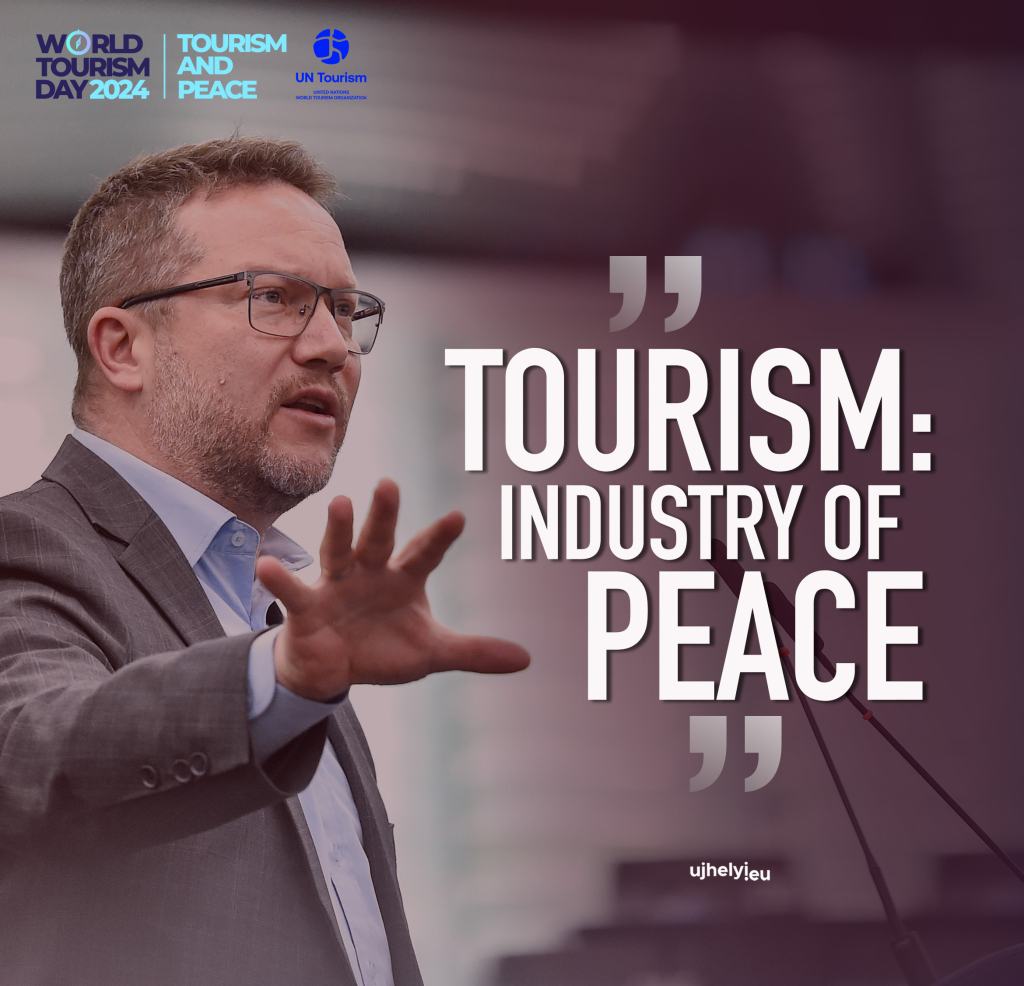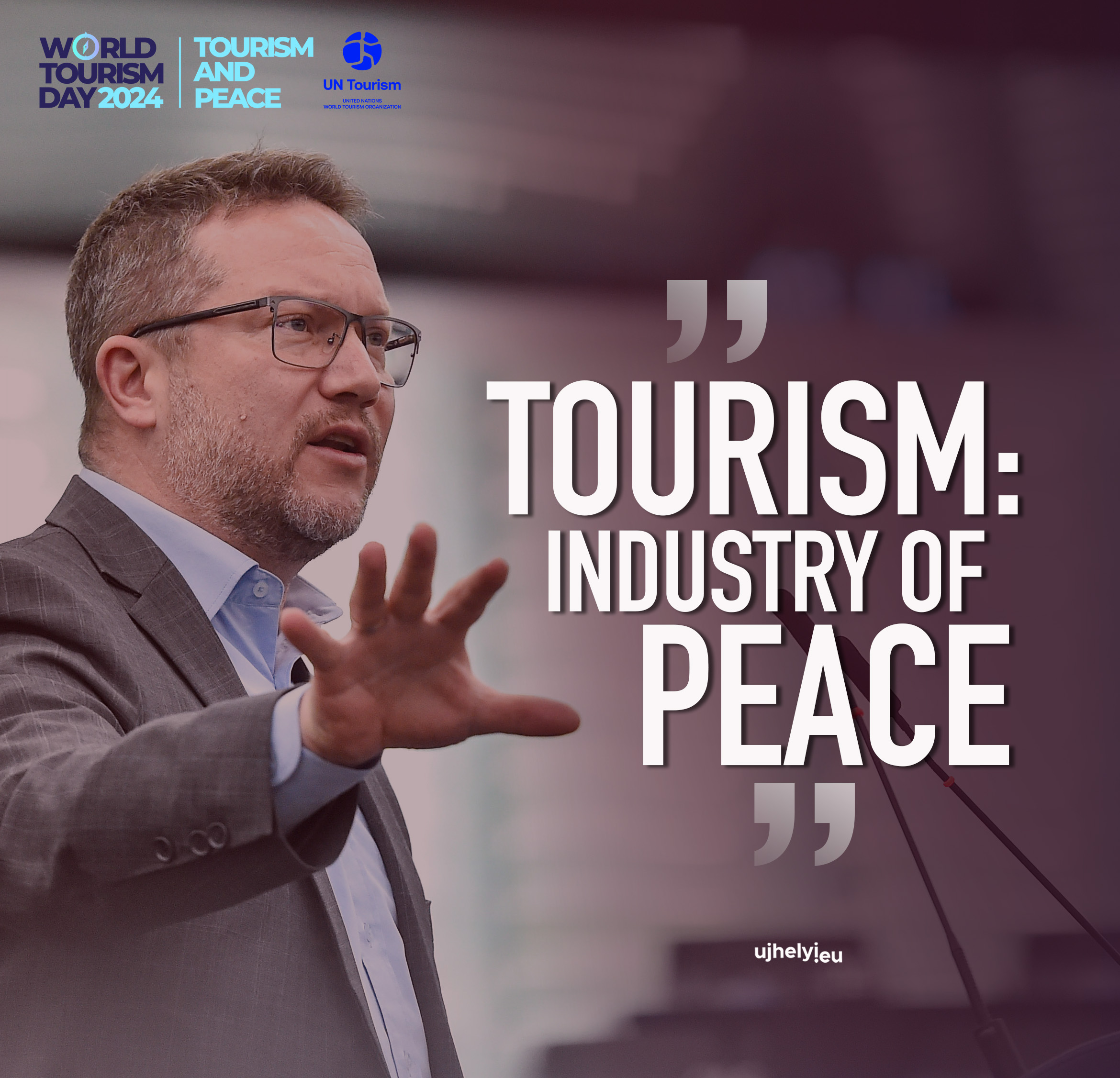Published: 27.9.2024

„A small step for European politics, but a giant leap for the tourism industry – this is how we could summarize the historic change that the newly established European Commission will now have a dedicated EU Commissioner for Tourism. This finally puts the sector’s affairs on the shelf it has long deserved,” said István Ujhelyi, the UN World Tourism Organization’s (UN Tourism) ambassador to the EU institutions, in a statement issued on the occasion of „World Tourism Day” on September 27. The former MEP recalled that in recent years he had repeatedly urged the European Commission’s leadership and member state governments to appoint a dedicated EU Commissioner for this area, as tourism is the third-largest economic sector in Europe, providing livelihoods for nearly 25 million people and generating almost 350 billion euros in annual revenue. „With the fact that in the new institutional structure a specific commissioner will oversee the portfolio of sustainable transport and tourism, the sector will finally receive the special attention it deserves,” Ujhelyi stated, adding that the Greek nominee for the post, Apostolos Tzitzikostas, is well-suited for the role, having demonstrated his leadership and managerial skills as the former president of the European Committee of the Regions.
In his statement, István Ujhelyi also pointed out that the sector is growing at a rapid pace: in 1950, there were barely 25 million tourists globally; by 2000, the number had reached 700 million; by 2012, it had reached one billion, and soon we will surpass two billion. „This is obviously good for the industry, but it’s a significant burden on our environment, which must be addressed. There is a need to support and showcase projects that promote sustainability, especially those led by young university students, start-up experts and developers,” emphasized the policy expert. Ujhelyi also noted that one of the most significant challenges for the sector in the coming period will be addressing the shortage of skilled labor, primarily through training programs and reallocating substantial EU funds – something that might be feasible with the support of the new commissioner’s portfolio. Other critical challenges, in his view, include maximizing the opportunities offered by digitalization and artificial intelligence, and reducing the negative impacts of mass tourism through smart and conscious shaping of travelers’ needs and modernizing so-called destination management. „The solution to this issue, and to adapting to the rapidly evolving demand, lies not only in expanding our imagination regarding destinations but also in the timing. It’s indeed difficult to understand why someone would want to leave a 40-degree Budapest in the summer to travel to a 45-degree Barcelona or another Mediterranean region, when these places can be just as enjoyable, if not more so, outside the summer high season,” Ujhelyi added.
The UN Tourism ambassador emphasized that tourism is truly the „industry of peace,” which, beyond its economic role, has much deeper sociological and cultural influence in a fragile geopolitical environment, so it matters whether we use or exploit it. „It’s no coincidence that this year’s ‘World Tourism Day’ theme highlights the relationship between tourism and peace. This sector must always remind us that peace requires tolerance, continuous interaction, and dialogue between peoples and cultures. The coming years in the tourism industry represent both a great opportunity and responsibility. An opportunity for economic development and meaningful resolution of sectoral issues, and a responsibility to ensure that this rapidly growing industry finds the best solutions for sustainability and promotes dialogue between countries and cultures. We have plenty of work to do,” added István Ujhelyi, the ambassador of UN Tourism.
Brussels/Budapest – September 27., 2024.
